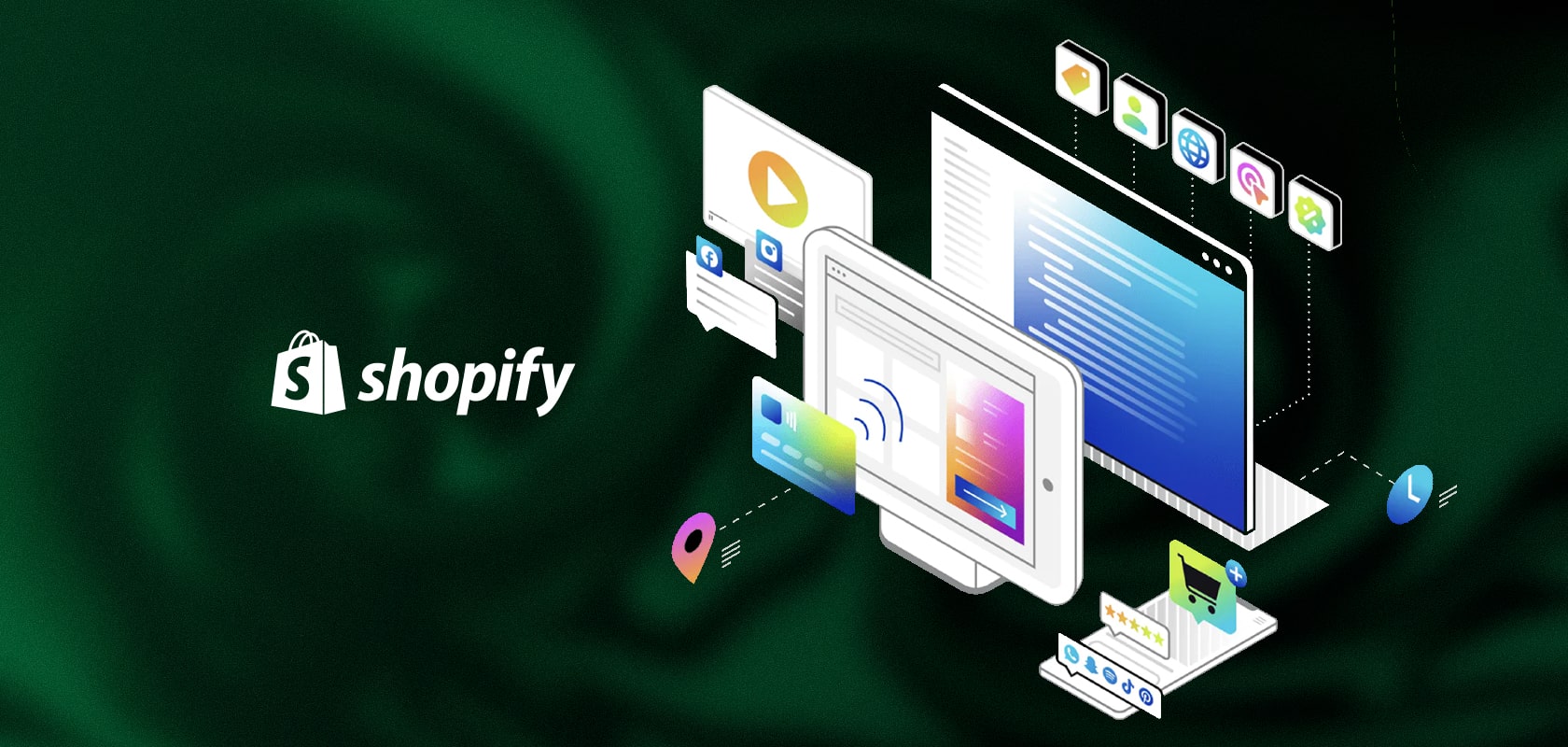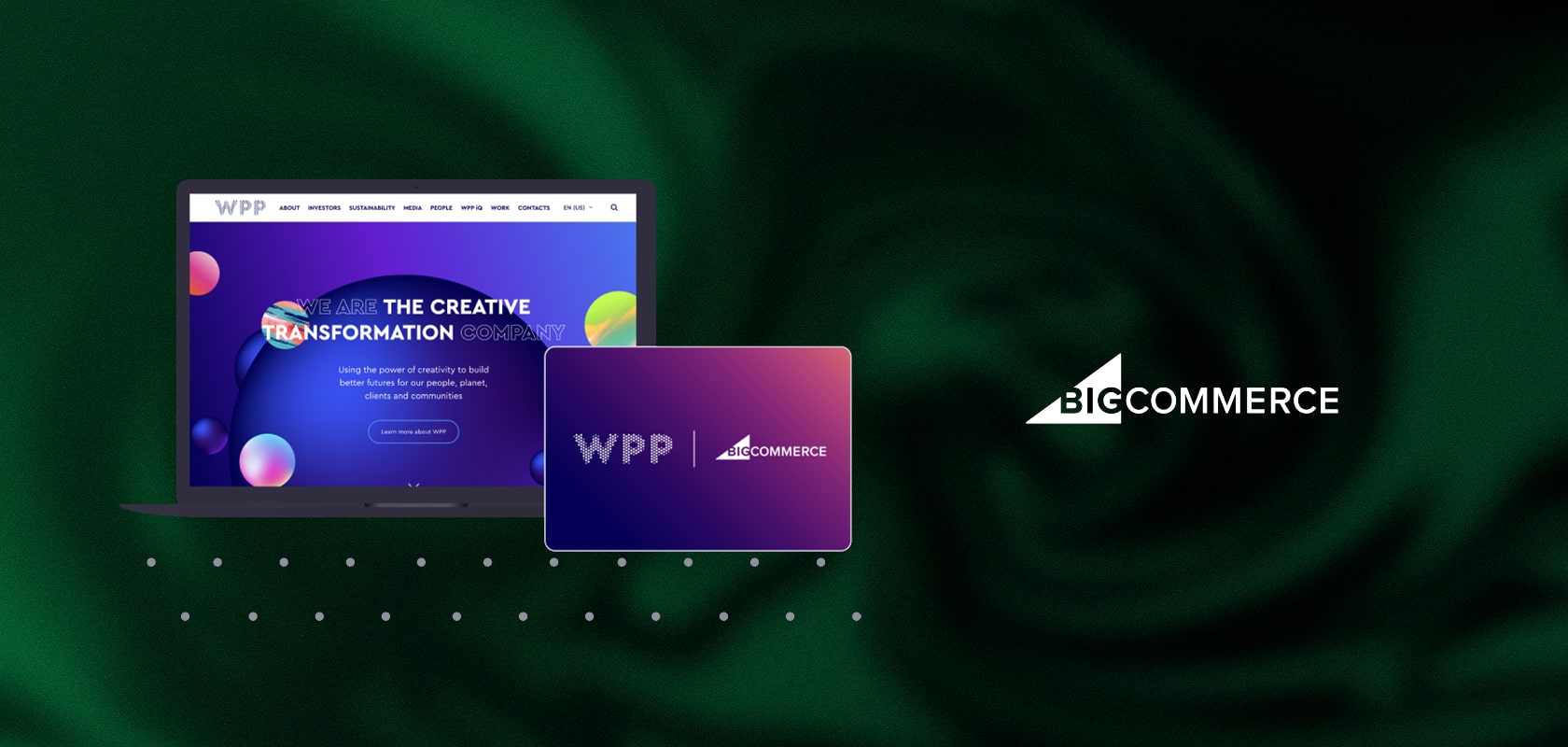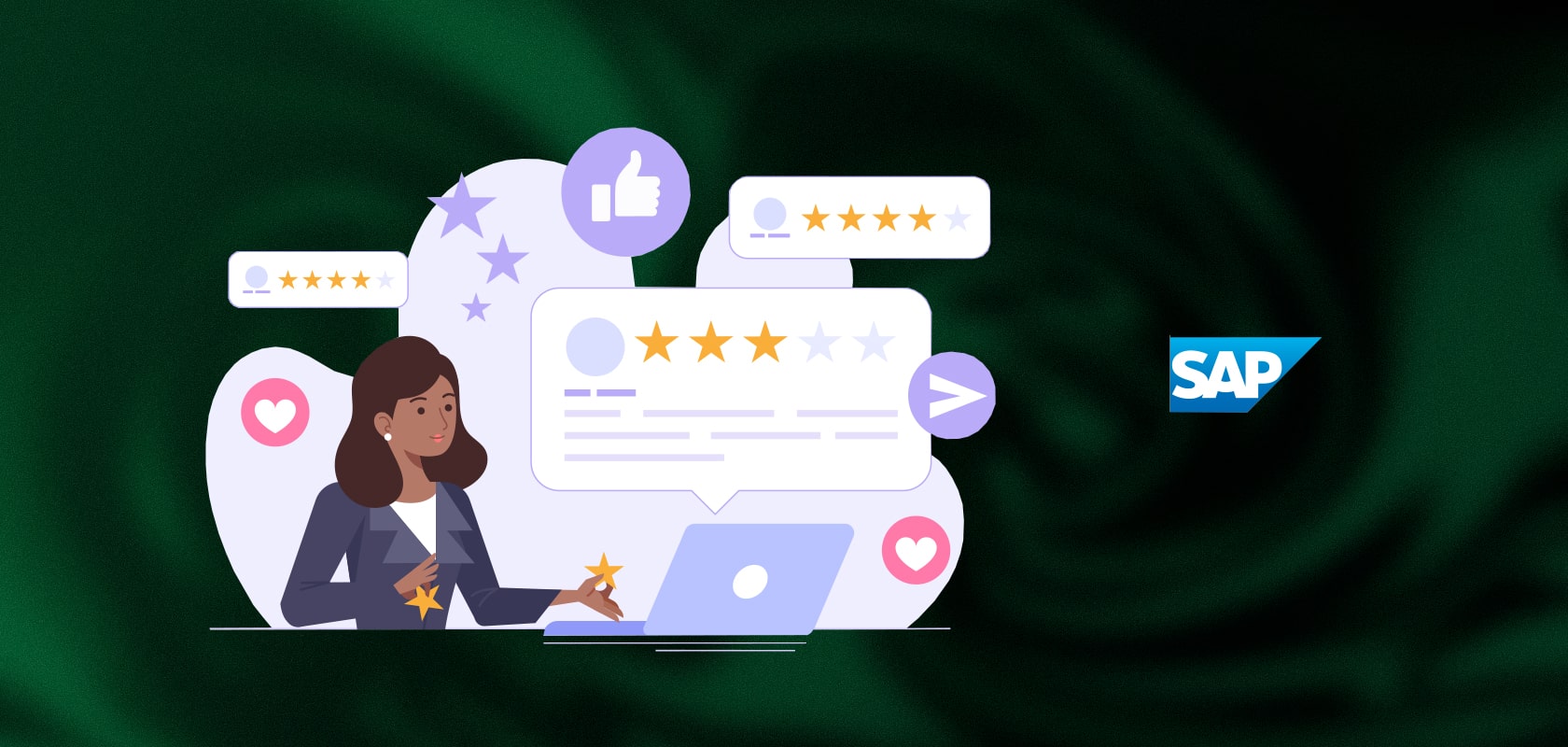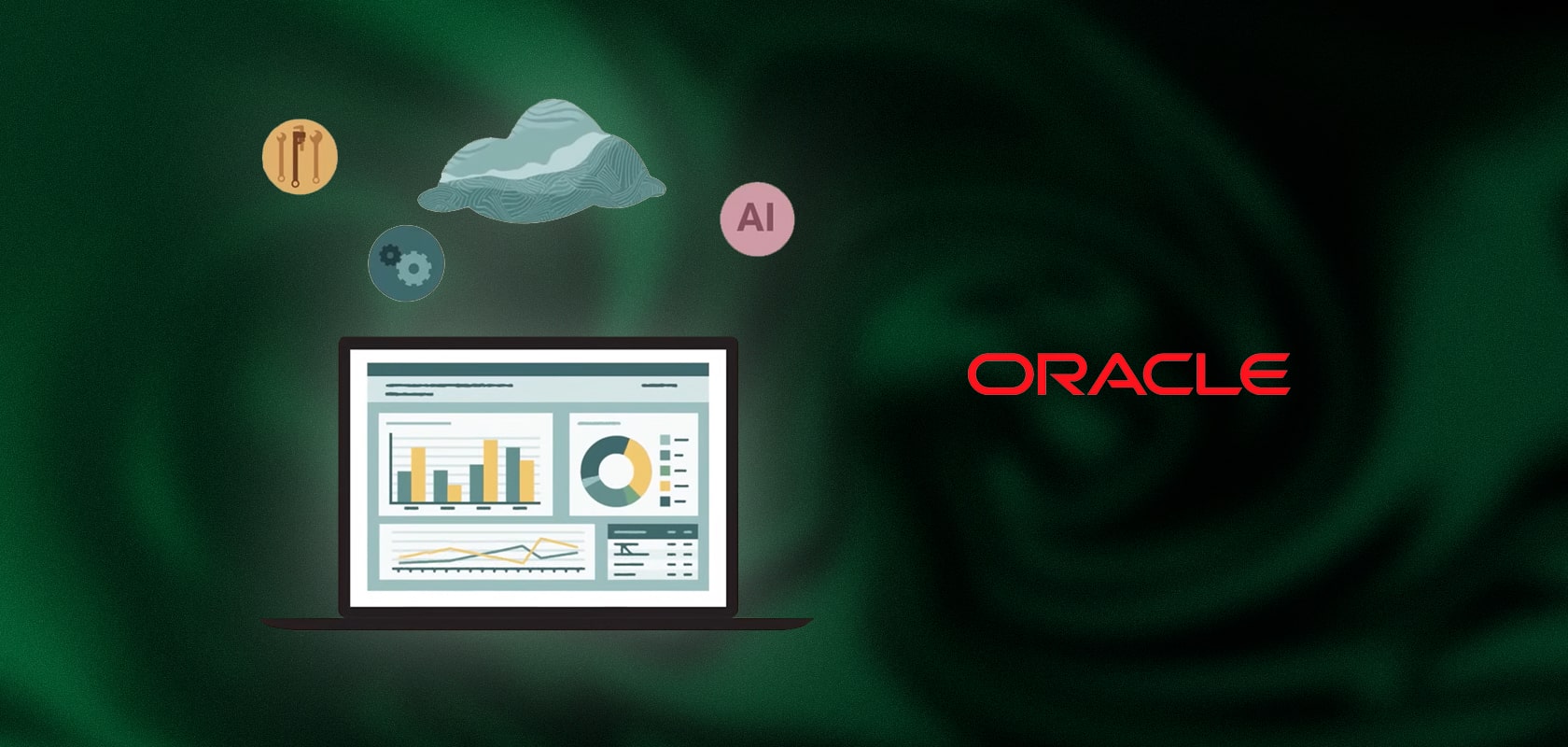A classic enterprise commerce company offers a wide range of products, is represented worldwide and has an annual turnover in the millions. To be able to implement all this successfully, it uses an appropriate shop system. Enterprise commerce platforms can process a large number of transactions and customer contacts and create a 360-degree view of all business processes and customers.
If your company has already grown considerably and the previous e-commerce platform no longer meets your needs, or if scaling your business is on your agenda, you are in the right place. In the following, we will discuss, among other things, what is meant by enterprise commerce, when you should consider migrating to an enterprise commerce platform and what are the advantages of such a solution.
Are you considering switching to the Shopify Plus enterprise platform? Then contact us! As the first recognised Shopify Plus agency in the DACH region, we advise and support you on your way to enterprise commerce.
Table of contents
- Enterprise Commerce: What is meant by it
- Enterprise Commerce vs. E-Commerce
- Advantages and disadvantages of enterprise commerce platforms
- The 7 best enterprise platforms 2026
- Signs that your company is ready for enterprise commerce solutions
- Advantages of the conversion to Enterprise Commerce
- Enterprise commerce platforms: Here's what they can include
- The enterprise solution from Shopify: Shopify Plus
- Conclusion
Enterprise Commerce: What is meant by it
Enterprise commerce is the buying and selling of goods and services by large companies. This requires complex software solutions, also called enterprise commerce platforms.
In short, enterprise commerce is understood as a cross-system solution for all business processes under the heading of an overall digital strategy. Enterprise commerce platforms include more powerful tools for inventory tracking, customer relationship management, and handling larger order volumes.
Enterprise Commerce vs. E-Commerce
E-commerce is a sub-sector of e-business that generally encompasses electronic commerce, i.e. the selling, buying and advertising of goods and services on the Internet. The term has become one of the central business models on the internet and some common e-commerce platforms are:
Shopify
Wix
Jimdo
WooCommerce
Webflow
Enterprise commerce is a special form of e-commerce. It is typically characterised by multi-million euro sales, large operations and a global brand presence. Some examples of enterprise commerce platforms are:
Shopify Plus
Salesforce
Magento
OpenCircle
Optimizely Commerce Cloud
Enterprise commerce platforms have the infrastructure and tools needed to handle high volumes of orders and customers. Many also offer businesses the ability to seamlessly unify all operations into one digital ecosystem. Pricing can vary - for example, there are free open source platforms or managed cloud services offered as a software-as-a-service (SaaS) solution.
Reading tip: When you should take the next step and switch to Shopify Plus.
Advantages and disadvantages of enterprise commerce platforms
Enterprise commerce platforms offer comprehensive solutions for large and established e-commerce businesses. Here are some advantages and disadvantages of such platforms:
Advantages
Scalability: enterprise commerce platforms are designed to keep up with the growth of a business. They can easily handle a high number of products, transactions, and customers.
Comprehensive features: These platforms offer a wide range of features relevant to large enterprises, including advanced product management, multiple currencies, international taxes, comprehensive CRM integrations, personalized marketing features, and more.
Customizability: enterprise commerce platforms often offer the ability to customize the store and checkout to meet the unique needs of the business. This allows for seamless integration with existing systems and greater control over the shopping experience.
Security and compliance: because businesses deal with sensitive customer and transaction data, enterprise commerce platforms offer stringent security features and are often PCI-DSS compliant. This is especially important for customer data protection and regulatory compliance.
Enterprise integration: These platforms enable seamless integration with other enterprise systems such as ERP, CRM and enterprise resource planning. This facilitates smooth operation of the entire business process.
Disadvantages
Cost: Enterprise commerce platforms tend to be more expensive, both in terms of licensing costs and implementation and customization. This can be a heavy financial burden for businesses.
Complexity: The extensive features and customization options often result in a more complex platform. This requires specialized expertise to effectively use and manage the platform.
Implementation Time: Implementing an enterprise commerce platform can be time-consuming, as it often requires extensive customization to meet a company's unique needs.
Maintenance and updates: Due to complexity and customization, enterprise commerce platforms require regular maintenance and updates to ensure they run smoothly and remain secure.
Learning curve: using and managing an enterprise commerce platform often requires a steep learning curve for the internal team. This can require training and specialized knowledge.
Overall, enterprise commerce platforms offer comprehensive solutions for large companies that have demanding requirements. However, choosing such a platform requires careful consideration of the pros and cons, as well as a detailed analysis of the company's specific requirements.
The 7 best enterprise platforms 2026
Shopify Plus
 Shopify Plus is the enterprise edition of Shopify, designed specifically for large and growing businesses. It offers advanced features, customized solutions, and greater scalability compared to the standard version of Shopify. Shopify Plus is aimed at merchants with complex requirements who need a powerful e-commerce platform to run their business at a higher level. We'll take a closer look at the enterprise solution later in the blog.
Shopify Plus is the enterprise edition of Shopify, designed specifically for large and growing businesses. It offers advanced features, customized solutions, and greater scalability compared to the standard version of Shopify. Shopify Plus is aimed at merchants with complex requirements who need a powerful e-commerce platform to run their business at a higher level. We'll take a closer look at the enterprise solution later in the blog.
Costs
The cost of the Shopify Plus Enterprise plan is based on revenue and is negotiated individually. It consists of a monthly base fee (starting at approximately $2,300 USD) and a small variable transaction fee of 0.25% of revenue. For very high revenues, a fixed monthly amount can be agreed upon instead.
Reading tip: We have summarized an overview of all Shopify prices for you in this blog.
| Advantages | Disadvantages |
|---|---|
| ✅ Merchant Success Center | - Some functions only via third-party providers and not out-of-the-box |
| ✅ B2B Commerce | - Partly complex integration of other systems |
| ✅ Scalability | |
| ✅ Strong performance | |
| ✅ Kopfloser Handel | |
| ✅ Customizable checkout | |
| ✅ Access to Launchpad | |
| ✅ Content Delivery Network |
Reading tip: We have summarized all Shopify Plus benefits for you in detail in this blog.
BigCommerce
 BigCommerce Enterprise is the powerful enterprise solution from BigCommerce, an e-commerce platform designed specifically for large and growing businesses. Here's some information about BigCommerce Enterprise, including costs, pros and cons:
BigCommerce Enterprise is the powerful enterprise solution from BigCommerce, an e-commerce platform designed specifically for large and growing businesses. Here's some information about BigCommerce Enterprise, including costs, pros and cons:
Costs
The exact cost of BigCommerce Enterprise can vary depending on individual requirements and the size of the business. Since it is a customized solution, the price is negotiated on an individual basis. Costs may include factors such as transaction volume, custom features, support levels, and other options.
Advantages and disadvantages
| Advantages | Disadvantages |
|---|---|
| ✅ Scalability | - High cost |
| ✅ Customizable solutions | - Needs more time to become familiar with the platform |
| ✅ Strong performance | - Dependence on developers |
| ✅ 24/7 Support |
Salesforce Commerce Cloud
 Salesforce Commerce Cloud, formerly known as Demandware, is a state-of-the-art enterprise e-commerce solution developed by Salesforce. Here's some information about Salesforce Commerce Cloud, including costs, pros and cons:
Salesforce Commerce Cloud, formerly known as Demandware, is a state-of-the-art enterprise e-commerce solution developed by Salesforce. Here's some information about Salesforce Commerce Cloud, including costs, pros and cons:
Costs
The cost of Salesforce Commerce Cloud is high and varies greatly depending on the needs and size of the business. It is a customized solution where prices are negotiated individually. The cost can affect factors such as transaction volume, custom features, implementation effort, and support levels.
Advantages and disadvantages
| Advantages | Disadvantages |
|---|---|
| ✅ Scalability | - High cost |
| ✅ Personalization | - Complexity |
| ✅ Omnichannel | - Dependence on developers |
| ✅ Seamless integration with Salesforce products | - Continuous maintenance |
| ✅ Robust ecosystem | - High time expenditure |
SAP Customer Experience
 SAP Customer Experience, formerly known as SAP Hybris, is a comprehensive enterprise e-commerce solution developed by SAP to help companies manage their e-commerce activities and customer relationships. Here's some information about SAP Customer Experience, including costs, pros and cons:
SAP Customer Experience, formerly known as SAP Hybris, is a comprehensive enterprise e-commerce solution developed by SAP to help companies manage their e-commerce activities and customer relationships. Here's some information about SAP Customer Experience, including costs, pros and cons:
Costs
The cost of SAP Customer Experience varies depending on the individual needs of the business, the size and scope of the e-commerce operation. Because SAP Customer Experience is an enterprise solution, costs are typically high and can consist of licensing fees, implementation and customization costs, and ongoing maintenance fees.
Advantages and disadvantages
| Advantages | Disadvantages |
|---|---|
| ✅ Comprehensive solution | - Complex |
| ✅ Seamless integration | - Expensive |
| ✅ Personalization | - Technical knowledge required |
| ✅ Omnichannel | - Time intensive |
| ✅ Scalability |
5. Oracle Commerce

Oracle Commerce is a cloud-native enterprise commerce platform (SaaS) designed for large, globally active companies. It offers an end-to-end solution for B2B and B2C and is characterized by its deep integration into the broad Oracle Customer Experience (CX) ecosystem (ERP, CRM, etc.).
Costs
Costs are based on an individually negotiated subscription model that depends on consumption (e.g., transaction volume or page views) and the use of additional Oracle services. Annual costs are very high, typically starting at around $250,000 to $300,000 for medium-sized companies.
Advantages and disadvantages
| Advantages | Disadvantages |
|---|---|
| ✅ Oracle Ecosystem Integration | - High operating costs |
| ✅ Native B2B/B2C capability | - Less flexibility for adjustments |
| ✅ High cloud scalability | - High implementation complexity |
| ✅ Intelligent AI features | - Small developer community |
| ✅ Robust security standards | - Langsame Implementierung |
| ✅ Omnichannel offering | - Strong dependence on manufacturers |
6. Commercetools

Commercetools is a leading e-commerce platform. It is based on APIs (interfaces) and the headless principle (separation of frontend and backend). The platform follows the MACH architecture. This means that it is very flexible and allows you to create individual online shops and sales experiences across all channels (web, mobile, social media) – without the rigid limitations of old, monolithic systems.
Costs
Commercetools uses a consumption-based “pay-as-you-grow” model. The costs consist of a low annual license fee plus fees based on actual API calls. However, this highly scalable model requires significant initial investment in development and integration.
Advantages and disadvantages
| Advantages | Disadvantages |
|---|---|
| ✅ Extreme flexibility | - High development costs |
| ✅ Future-proof MACH architecture | - High initial costs |
| ✅ Unlimited scalability | - Significant complexity |
| ✅ Fast time to market | - Design must be developed in-house |
| ✅ API-first (headless) | - Specialized knowledge required |
7. Adobe Commerce

Adobe Commerce (formerly Magento) is a leading, highly flexible enterprise e-commerce solution. As part of the Adobe Experience Cloud, the platform seamlessly integrates content management, business intelligence, and commerce for optimal scalability and customizability.
Costs
Adobe Commerce uses an annual licensing model, with fees that are typically very high and depend heavily on the company's annual gross merchandise value (GMV). In addition to the license, significant costs must be factored in for complex implementation, custom development, and ongoing maintenance.
Advantages and disadvantages
| Advantages | Disadvantages |
|---|---|
| ✅ Extreme flexibility | - High total cost of ownership (TCO) |
| ✅ High scalability | - High complexity |
| ✅ Extensive range of functions | - Technical requirements |
| ✅ Integration with Adobe Cloud | - Long implementation time |
Signs that your company is ready for enterprise commerce solutions
Enterprise commerce solutions are usually something that companies grow into over time. Rather, however, they outgrow their previous e-commerce system because it no longer meets their own requirements. But entrepreneurs don't have to wait for that time. If it is already apparent that your system has insurmountable limits in the medium or long term, you can also bring forward the leap into enterprise commerce and adapt your processes early on. This usually has the advantage that the changeover can take place gradually and you have more time for the change.
But when has the point been reached when you should definitely consider an enterprise commerce system? There are a number of signs of this:
Downtime is on the rise. If your platform, website or connected services are constantly down, it may be a sign that current demand or traffic can no longer be handled.
The platform does not support all the necessary functions.
You have to constantly search for suitable add-ons instead of benefiting from a unified interface with many tools.
You experience bottlenecks in service or production. An inadequate system can slow down operations by making it harder to find information, such as customer orders, supplier information, supply chain data, inventory management and more.
Sales on the world market create a lot of extra work for you. A platform that does not support language or currency options can make it much more difficult for you to internationalise.
You don't have a complete picture of your financial situation. From lost invoices to inaccurate reports, the risks of not having an overview of your finances are huge. If it's difficult to track down this information, you probably need more robust software.
You can't add more team members. Many shop systems that are not intended for enterprise commerce limit the number of people who can log into the back end. If you are faced with this limitation, it may be time to move to an enterprise platform to increase scalability.
Advantages of the conversion to Enterprise Commerce
So we now know that businesses should migrate to enterprise commerce software if their current e-commerce platform is no longer sufficient. If you are considering a migration, you can benefit from the following advantages, among others:
A better customer experience: Customer experience is not just about how well your online shop works or how beautiful your shop front is. It's about how quickly and well your business delivers goods and services to your customers. An enterprise platform can help you better meet your customers' needs.
Operational efficiency: Enterprise commerce platforms are typically cloud-based or hosted on-premise, which makes it easier to integrate with your CRM system. They also help keep all of your key business functions in a single ecosystem, so your team doesn't have to switch back and forth between different services.
Scalable features: Whether you have one website or multiple, an enterprise platform can help you manage them all seamlessly. Plus, these solutions typically support powerful integrations and APIs so you can easily work with all the tools you need.
Improved security: Enterprise commerce solutions not only provide better security, but also more visibility into business operations.
Deeper analytics: The modern business landscape is driven by data. An enterprise platform that is able to collect and analyse data can help you make smarter business decisions faster.
Omnichannel: Enterprise commerce solutions can bridge the gaps between brick-and-mortar and online shops. This means more seamless experiences, smoother transactions and higher customer satisfaction.
Reading tip: In this post, we reveal 12 ways to increase AOV with Shopify Plus.
Enterprise commerce platforms: Here's what they can include
So an enterprise commerce platform can bring different departments together in one central point and provide a reliable communication platform. This includes integration with other business systems, including accounting, inventory and CRM systems - and all of this should be scalable.
The following solutions are also often included in enterprise platforms:
| E-commerce platforms | |||
|---|---|---|---|
| Business Intelligence | (BI) | Low-code development platforms | (LCDP) |
| Content-Management-System | (CMS) | Human Resources Management | (HRM) |
| Customer-Relationship-Management | (CRM) | Product-Lifecycle-Management | (PLM) |
| Database management system | (DBMS) | Product data management | (PDM) |
| Enterprise Asset Management | (EAM) | Product information management | (PIM) |
| Enterprise Resource Planning | (ERP) | Security Information and Event Management | (SIEM) |
| Business Process Management | (BPM) | Software-definierte Vernetzung | SDN |
| Intrusion-Detection und -Prevention | (IDS) | Supply chain management | (SCN) |
Reading tip: How to test your website speed with Shopify.
The enterprise solution from Shopify: Shopify Plus
a scalable e-commerce solution designed for large, high-growth businesses. The main advantage is that it offers more control, customisation and automation, and combines faster speed with better omnichannel services.
Merchants get multiple stores directly with Shopify Plus, so they can take off internationally and reach different audiences. They also get a dedicated partner, called a Merchant Success Manager (MSM), who acts as their first point of contact. In addition to an MSM, using Shopify Plus gives online merchants access to exclusive features that help them grow their brand and business.
We have listed the most important differences to the Shopify standard package for you here:
Premium Support
Launch Engineer to help you get started
Shopify Flow for automation
Easier sales to corporate customers through wholesale channel
Event campaigns can be managed with Shopify Launchpad
More options in checkout
Better conditions by reducing transaction costs
Access to more exclusive APIs for more integrations and automations
Reading tip: In the article we explain how you can build a multichannel strategy with Shopify.
Conclusion
Currently, more than 10,000 brands worldwide rely on the Shopify Plus enterprise commerce platform. Well-known German examples and also Latori customers include LIVE FAST DIE YOUNG, Asphaltgold. If you too are now thinking of switching to enterprise commerce, let's talk about your options. After all, there are a number of things to consider when migrating, such as forwarding old links, transferring customer data, transferring orders, and much more, and we will be happy to provide you with active support.
If you would like to migrate from Shopify or another e-commerce solution to Shopify Plus, we would be happy to help and advise you. Please feel free to contact us.
Frequently asked questions about Enterprise Commerce
What is Enterprise Commerce?
Enterprise Commerce refers to large, often internationally active brands and retail companies that process a large number of online transactions on a daily basis. To meet the requirements of this scale, the store system must be scalable in several ways. This usually includes a large number of users who often access the system from multiple locations and different departments. In addition, multiple languages and currencies must be supported. This creates complex security, hosting and support requirements.
What are enterprise commerce platforms?
Enterprise commerce platforms are store systems that are mostly used by larger companies. They are more powerful and offer a wider range of tools than most classic e-commerce platforms. An example of an enterprise platform is Shopify Plus. For more information on the topic, check out this blog post.
What enterprise commerce platforms are there?
There are quite a few store systems available on the market today, however, enterprise platforms are only a handful so far. Examples include: Shopify Plus, BigCommerce and Adobe Commerce. Read the article to find out more about enterprise commerce.
When is it worth switching from traditional e-commerce to enterprise commerce?
Enterprise solutions like Shopify Plus offer a number of advantages over traditional e-commerce platforms for medium and large enterprises. The only question is, when is a company actually "enterprise" enough to make the switch? A migration may be an option for you, for example, if your order volume is very high, you generate sales of close to a million euros or more per year, you want to internationalize, or you need multiple functions.
Which is the best e-commerce platform?
Which platform is right for you depends entirely on the requirements you have for the platform. Our favorite is and remains Shopify, as merchants benefit from numerous advantages here, such as a range of functions, an extensive app store, or ease of use.

